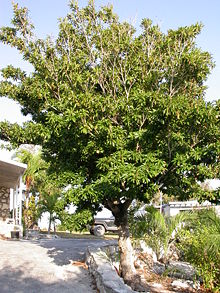A new book on adaptive co-management has just been published by UBC press: Adaptive Co-Management: Collaboration, Learning, and Multi-Level Governance. A fair number of people who have been involved with resilience research have contributed to the book. I just received my copy in the mail and it looks great.
The book is a result of a project that has been coordinated by Canadian scientists Derek Armitage, Fikret Berkes, and Nancy Doubleday. They describe the book:
In Canada and around the world, governments are shifting away from regulatory models for governing natural and cultural resources. New concerns with adaptive processes, feedback learning, and flexible partnerships are reshaping environmental governance. Meanwhile, ideas about collaboration and learning are converging around the idea of adaptive co-management.
This book provides a comprehensive synthesis of the core concepts, strategies, and tools in this emerging field, informed by a diverse group of researchers and practitioners with over two decades of experience. It also offers a diverse set of case studies that reveal the challenges and implications of adaptive co- management thinking and synthesizes lessons for natural and cultural resource governance in a wide range of contexts.
Adaptive Co-Management is not only a timely book but also a useful concept for resource governance in a world marked by rapid socio-ecological change. It will be of interest to researchers, environmental practitioners, policy-makers, and students in fields across the political and environmental spectrum.
Table of Contents
1 Introduction: Moving beyond Co-Management / Derek Armitage, Fikret Berkes and Nancy Doubleday
Part 1: Theory
2 Adaptive Co-Management and Complexity: Exploring the Many Faces of Co- Management / Fikret Berkes
3 Connecting Adaptive Co-Management, Social Learning, and Social Capital through Theory and Practice / Ryan Plummer and John FitzGibbon
4 Building Resilient Livelihoods through Adaptive Co-Management: The Role of Adaptive Capacity / Derek Armitage
5 Adaptive Co-Management for Resilient Resource Systems: Some Ingredients and the Implications of Their Absence / Anthony Charles
Part 2: Case Studies
6 Challenges Facing Coastal Resource Co-Management in the Caribbean / Patrick McConney, Robin Mahon, and Robert Pomeroy
7 Adaptive Fisheries Co-Management in the Western Canadian Arctic / Burton G. Ayles, Robert Bell, and Andrea Hoyt
8 Integrating Holism and Segmentalism: Overcoming Barriers to Adaptive Co- Management between Management Agencies and Multi-Sector Bodies / Evelyn Pinkerton
9 Conditions for Successful Fisheries and Coastal Resources Co-Management: Lessons Learned in Asia, Africa, and the Wider Caribbean / Robert Pomeroy
Part 3: Challenges
10 Communities of Interdependence for Adaptive Co-Management / John Kearney and Fikret Berkes
11 Adaptive Co-Management and the Gospel of Resilience / Paul Nadasdy
12 Culturing Adaptive Co-Management: Finding “Keys” to Resilience in Asymmetries of Power / Nancy Doubleday
Part 4: Tools
13 Novel Problems Require Novel Solutions: Innovation as an Outcome of Adaptive Co-Management / Gary P. Kofinas, Susan J. Herman, and Chanda Meek
14 The Role of Vision in Framing Adaptive Co-Management Processes: Lessons from Kristianstads Vattenrike, Southern Sweden / Per Olsson
15 Using Scenario Planning to Enable an Adaptive Co-Management Process in the Northern Highlands Lake District of Wisconsin / Garry Peterson
16 Synthesis: Adapting, Innovating, Evolving / Fikret Berkes, Derek Armitage and Nancy Doubleday



